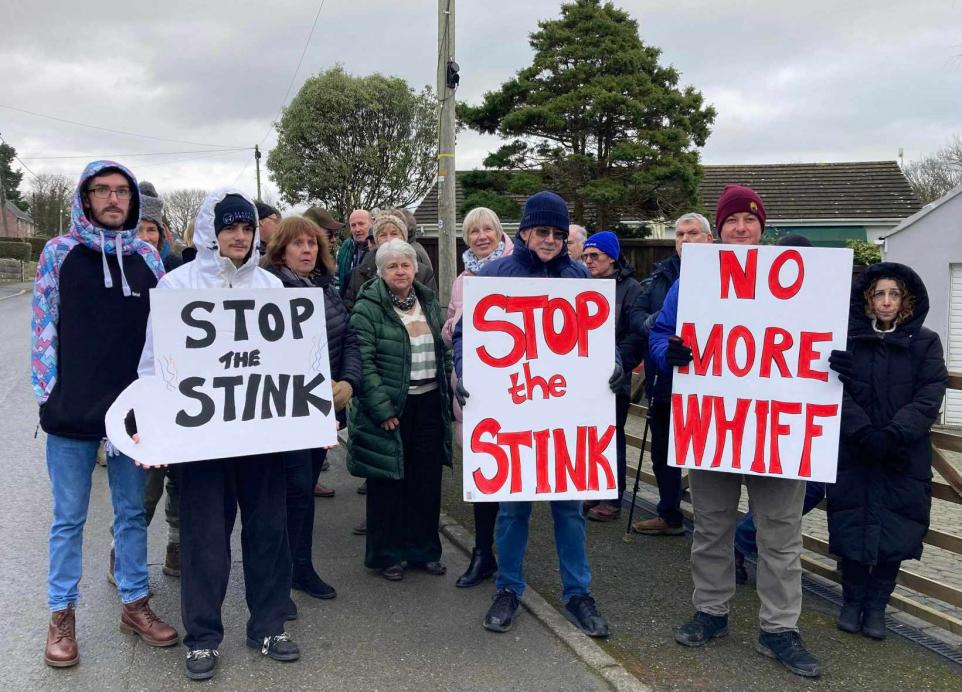News
Chelsea Manning goes on hunger strike
 CHELSEA MANNING, the United States Army soldier who was born in Pembrokeshire and attended Tasker Milward School in Haverfordwest, announced yesterday (Sep 9) that she is going on a hunger strike until she is treated for gender dysphoria.
CHELSEA MANNING, the United States Army soldier who was born in Pembrokeshire and attended Tasker Milward School in Haverfordwest, announced yesterday (Sep 9) that she is going on a hunger strike until she is treated for gender dysphoria.
Chelsea is transgender and previously went by the name of Bradley. She is currently serving a 35 year sentence after being convicted of leaking classified documents to the Wikileaks website. She was sentenced in 2013.
In July she attempted suicide in her Kansas jail.
In a statement Chelsea said: “I need help. I am not getting any. I have asked for help time and time again for six years and through five separate confinement locations. My request has only been ignored, delayed, mocked, given trinkets and lip service by the prison, the military, and this administration.
“I need help. I needed help earlier this year. I was driven to suicide by the lack of care for my gender dysphoria that I have been desperate for. I didn’t get any. I still haven’t gotten any.
“I needed help. Yet, instead I am now being punished for surviving my attempt. When I was a child, my father would beat me repeatedly for simply not being masculine enough. I was told to stop crying—to “suck it up.” But, I couldn’t stop crying. The pain just got worse and worse. Until finally, I just couldn’t take the pain anymore.
“I needed help, but no one came then. No one is coming now.
“Today, I have decided that I am no longer going to be bullied by this prison—or by anyone within the U.S. government. I have asked for nothing but the dignity and respect—that I once actually believed would be provided for—afforded to any living human being.
“I do not believe that this should be dependent on any arbitrary factors—whether you are cisgender or transgender; service member or civilian, citizen or non-citizen. In response to virtually every request, I have been granted limited, if any, dignity and respect—just more pain and anguish.
“I am no longer asking. Now, I am demanding. As of 12:01 am Central Daylight Time on September 9, 2016, and until I am given minimum standards of dignity, respect, and humanity, I shall—refuse to voluntarily cut or shorten my hair in any way; consume any food or drink voluntarily, except for water and currently prescribed medications; and comply with all rules, regulations, laws, and orders that are not related to the two things I have mentioned.
“This is a peaceful act. I intend to keep it as peaceful and non-violent, on my end, as possible. Any physical harm that should come to me at the hands of military or civilian staff will be unnecessary and vindictive. I will not physically resist or in any way harm another person. I have also submitted a “do not resuscitate” letter that is effective immediately. This shall include any attempts to forcibly cut or shorten my hair or to forcibly feed me by any medical or pseudo-medical means.
“Until I am shown dignity and respect as a human again, I shall endure this pain before me. I am prepared for this mentally and emotionally. I expect that this ordeal will last for a long time. Quite possibly until my permanent incapacitation or death. I am ready for this.
“I need help. Please, give me help.”
News
Welsh Lib Dems urge First Minister to return dodgy donation

THIS week in the Senedd, the Welsh Liberal Democrats have urged the First Minister to return the £200,000 donation he received from a company linked to environmental crimes.
Speaking to the Senedd on Wednesday, party leader Jane Dodds MS urged FM Vaughan Gething to return money donated to his campaign by Dauson Environmental, a refuse and recycling business owned by David John Neal.
Mr Neal received a 3-month suspended prison sentence in 2013 for illegally dumping waste at a conservation site on the Gwent levels.
His companies Atlantic Recycling and Neal Soil Suppliers were also prosecuted and given fines and costs of £202,000.
Then in 2017, Mr Neal was given another suspended sentence of 18 weeks, with fines and costs of £230,000 after failing to remove the waste.
The Welsh Lib Dems have called on the FM to return the donation, as part of wider calls for a shift away from the influence of “big money” in Welsh politics.
Commenting, the Leader of the Welsh Liberal Democrats Jane Dodds MS said:
“This entire episode has casted a dark shadow upon Welsh democracy and has rightfully led to many questioning the integrity of Vaughan Gething’s leadership campaign and the way our democracy works here in Wales.
Unfortunately for many of us this is hardly surprising, as our political system has been broken for quite some time now.
A system that empowers the elite donor class whilst simultaneously shutting out the voice of the voter is a perversion of democracy itself.
This is why our wider goal must be to remove the influence of ‘big money’ from Welsh politics once and for all.
We cannot have another government that prioritises the interests of its financial benefactors over those of the Welsh people.
We need to take a firm stance in rooting out the influence of cash in Welsh politics, for the sake of our communities we must start prioritising their interests and needs instead of having more self-serving politicians.”
News
Council seeking legal advice to address Withyhedge enforcement

PEMBROKESHIRE County Council says it has sought legal advice and is contemplating legal proceedings against Withyhedge Landfill operators RML, in regards to the ongoing odour issues at the site.
The Council intends to ask the Court for an injunction requiring RML to abate the public nuisance odour arising from the landfill. Failure to comply with the injunction would be contempt of court, which carries a penalty of up to two years’ imprisonment and unlimited fine.
Following significant work undertaken by RML the Authority is disappointed that the problem has not been resolved and residents continue to be impacted by the odour.
Working in collaboration with Natural Resources Wales (NRW) and Public Health Wales (PHW), we fully appreciate that the communities affected cannot tolerate this any longer.
NRW announced that the first set of deadlines for the completion of actions to tackle the ongoing odour issues at Withyhedge Landfill have been met, one week on following the issuing of further enforcement action on 18th April.
This will be closely monitored by NRW to ensure the operator complies with all the actions set out in Notice by 14 May.
It was deemed appropriate to wait until the operator had carried out mitigation to comply with the enforcement requirements by NRW prior to considering this additional action.
To that end, on 26th April 2024, the Council served RML with a letter of claim and invited them to give legally binding undertakings to abate the odour nuisance or face legal proceedings. The Council also asked for disclosure of documents relevant to the proceedings, including records of waste brought in or removed from the landfill.
The Council has given RML until 14th May 2024 to respond to its letter of claim. This aligns with the current deadline set by NRW under its enforcement notice.
Pembrokeshire County Council Chief Executive Will Bramble welcomed the move. He said: “We are extremely disappointed that RML has not delivered the necessary action to stop the completely unacceptable smells from the site.
“We fully support the additional enforcement action being taken by NRW and continue to work closely with them to do all in our power to correct the situation.
“Our intention to ask the Court for an injunction requiring RML to stop the odour nuisance arising from the landfill, is another part of our collaborative approach. The smell from Withyhedge is having a major impact on residents and visitors. This situation has gone on too long and it is unacceptable.”
News
Beautiful, funny and lovely: Family pay tribute to Sian Batchelor

THE family of a woman has paid tribute to a “beautiful, funny, lovely person.”
Sian Batchelor, aged 32, was found on a beach near Pennar, Pembroke Dock on Tuesday evening, April 30th, 2024.
Her family has issued a statement to say: ‘We are devastated by our loss. Sian was a beautiful, funny, loving person. We will treasure the good times we had with her.
“We would now like time to grieve and would ask to be given privacy in which to do so.”
The circumstances surrounding Sian’s death are being investigated and police would like to hear from anyone with information, sightings of Sian or contact from Sian, between Thursday April 25 to Tuesday April 30.
Police can be contacted either online at: https://bit.ly/DPPContactOnline, by emailing [email protected], or by calling 101. If you are deaf, hard of hearing, or speech impaired text the non-emergency number on 07811 311 908.
Quote reference: DP-20240430-284
-

 News1 day ago
News1 day agoPolice investigating after woman found dead on beach near Pennar
-

 News1 day ago
News1 day agoPolice discover body in search for Luke Stephenson, 19
-

 Crime2 days ago
Crime2 days agoLlandissilio man accused of making hundreds of child abuse images
-

 News1 day ago
News1 day agoCouncillors block Milford Haven boxing event – promoter to appeal
-

 Business6 days ago
Business6 days agoLargest Welsh port appoints communications and marketing director
-

 Business2 days ago
Business2 days agoLidl GB eyes Pembroke Dock for new larger supermarket
-

 News2 days ago
News2 days agoSearch efforts continue for missing teenager Luke Stephenson
-

 News5 hours ago
News5 hours agoBeautiful, funny and lovely: Family pay tribute to Sian Batchelor
























